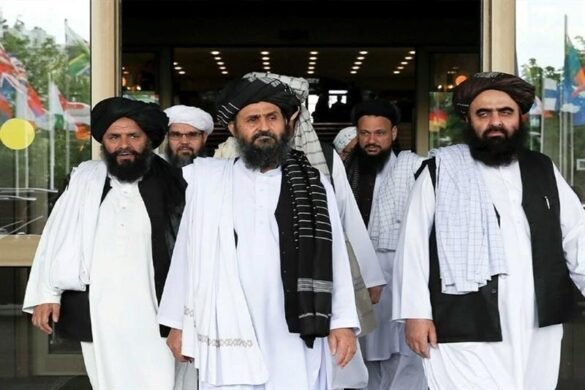Taliban Officials Attend COP29 Climate Summit as Observers for the First Time Since 2021
In a historic move, officials from Afghanistan’s Taliban-led government are attending the COP29 climate summit in Baku, Azerbaijan. This marks the Taliban administration’s highest-profile international appearance since taking control of Afghanistan in 2021. The Taliban officials, representing Afghanistan’s National Environmental Protection Agency, will observe proceedings and participate in side discussions at the United Nations climate conference.
Afghanistan’s Presence Without Formal UN Recognition
The United Nations has not officially recognized the Taliban as the legitimate government of Afghanistan, citing restrictions on women’s rights and freedoms. As a result, Afghanistan’s seat at the UN remains unfilled, and Taliban officials cannot engage in formal member-state sessions. Azerbaijan’s invitation to the Afghan representatives allows them to participate in COP29 as observers, facilitating limited interaction in periphery discussions and potential bilateral meetings.
Climate Change Devastates Afghanistan as International Engagement Remains Limited
Afghanistan faces severe climate impacts, including devastating flash floods and prolonged droughts that threaten its largely agriculture-dependent population. Hundreds of lives have been lost this year due to extreme weather, and the country’s ongoing food insecurity crisis continues to deepen. Despite these urgent challenges, Afghan environmental NGOs have also faced hurdles in attending recent climate negotiations, limiting their advocacy on behalf of Afghan communities vulnerable to climate change.
Growing Calls to Address Isolation of Afghanistan
The Taliban’s exclusion from formal UN representation has sparked debate among some international advocates, who argue that isolating Afghanistan only exacerbates the hardships faced by Afghan citizens. Habib Mayar, deputy general secretary of the g7+, an organization representing conflict-affected countries, emphasized Afghanistan’s vulnerability to climate impacts and the challenges it faces in connecting with global resources and assistance.
“Afghanistan is one of the countries most affected by climate change but is left behind on critical support it needs,” Mayar stated. “The Afghan people are paying a double price—suffering from the effects of isolation and the worsening humanitarian crisis.”
Afghanistan’s Climate Crisis Amidst Social Restrictions
The Taliban’s strict social policies, including barring girls from secondary and higher education and requiring women to wear face coverings and travel with male guardians, have drawn widespread condemnation. The Taliban, however, maintains that it respects women’s rights as per its interpretation of Islamic law.
Limited Participation Amid Complex Global Dynamics
The Afghan Taliban’s attendance at COP29 reflects the complex dynamics surrounding international engagement with Afghanistan. While the Taliban’s observer status limits their official role, the participation highlights Afghanistan’s need for climate resilience support amid its humanitarian struggles. As the climate summit continues, Afghanistan’s climate challenges underscore the need for a nuanced approach to international cooperation that considers the welfare of Afghan citizens while addressing the complexities of recognition.
Stay connected to know more on arcnews.online for global news like Afghan Taliban Attend COP29 Climate Summit as Observers Amid International Non-Recognition. For videos updates visit our YouTube. Do subscribe to Arcnews to get latest updates directly in your mail box.
Have A Great Day.


